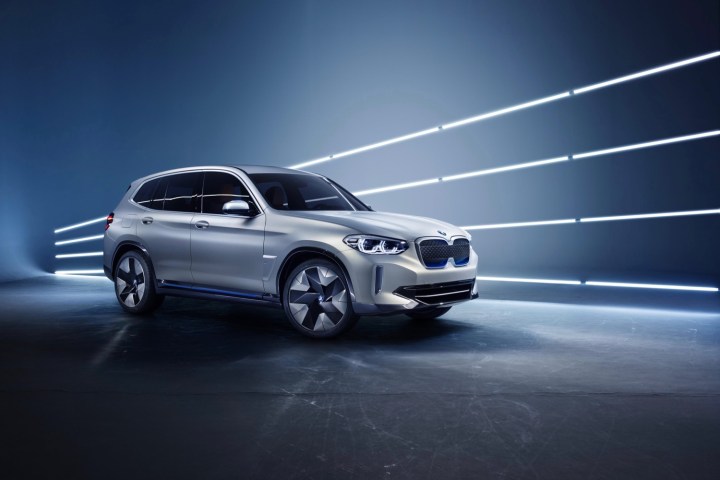
The future is electrified. The future is autonomous. The future is connected.
Automakers from all over the globe apply those three golden rules as they sculpt their future lineup. BMW is no exception. It has demonstrated a pioneering spirit in some of these areas but it also needs to keep its hard-earned reputation for building the ultimate driving machine intact. That’s a tall order to fill.
Digital Trends handed the microphone to Ralph Mahler, BMW’s director of product planning and strategy, to get insight on what the future holds and how the brand aims to stay true to its roots.
Digital Trends: Looking ahead, in-car connectivity represents a major area of change and innovation for car companies. How does BMW see it?
Ralph Mahler: Connectivity is a big topic. It’s one of the biggest trends, I would say, along with electrification and autonomous driving. And, autonomy is connected to the connectivity topic. I think that’s something which will drive a big portion of the development of future models and there will be no limit to it. That’s something we picked up on; we were the earliest ones on the market with Connected Drive. I think that’s something which will be seen in cars for many, many decades into the future.
Connectivity is a big topic. It’s one of the biggest trends, I would say, along with electrification and autonomous driving.
You mentioned electrification. BMW built its reputation on sports cars. Now, the firm is branching out into autonomous and electric cars. How do you strike a balance between these opposing ends of the same spectrum?
We don’t use the same brand for it all. We have a core brand, BMW, and then we have sub-brands which focus on different areas. BMW M is about performance, of course, and the other one is innovation with the i brand.
In the core brand you find both of these things but they’re not as pronounced. The performance is with M. We always have the ultimate driving machine that has everything in it. Then we have the future of mobility topics and the innovation topics in the i brand.
Is there a point where these three identities meet?
Yes. Looking into the future, we’re asking ourselves whether there is something like a high-performance segment within electrified vehicles. We see a couple of competitors today which have quite amazing zero-to-60-mph times. The question is whether these will form a completely new segment. Zero to 60 is not everything. It’s not only about acceleration in one dimension, it’s also about handling a course in the best way.

That’s the big question: is there going to be an [electrified] high-performance segment in the future? So far, I think there is no car on the market which fills this segment but that doesn’t mean there won’t be any.
Do you see obstacles on the path to the widespread adoption of electrification?
Electric mobility will take over; the big question is how fast. 2022, 2025, 2027? I’m convinced by 2030 most vehicles will be electrified in some way. Not so much mild hybrids, though. I mean either full electric or plug-in hybrid.
With mass electrification seemingly on the horizon, does diesel have a future?
I personally think yes. Let me elaborate. I think diesel is a very specific drivetrain. It’s about use cases. Diesel isn’t the right choice for everybody but there is a certain group [that still wants diesel engines]. We see that especially in the light truck segment. We have certain a share of diesel customers out there who love the agility and who love the range they get on a single fuel tank. They also love the torque, which is available at low engine revolutions.
Looking at what’s happening in Detroit, looking at domestic OEMs, there are a lot of diesel announcements. I personally think diesel is not dead.
“I think there are certain use cases [where hydrogen makes sense].”
Where do you stand on hydrogen?
Hydrogen is a pretty interesting topic. One thing we see today with most of the customers who are not going for electric vehicles is that they’re afraid of range limitations. With the hydrogen fuel cell, you have the same driving range you have today with a gasoline engine. But you don’t have the infrastructure. You can build it, of course, but it’s not going to be easy.
I think there are certain use cases [where hydrogen makes sense]. Putting too many batteries into a vehicle to add range is not that reasonable because you add cost and you add weight; it’s not the smartest solution.
Editors' Recommendations
- BMW shows off the future of iDrive tech at CES 2021
- BMW’s entry-level 2 Series Gran Coupe packs big tech in a small package
- BMW M bundles supercar-like performance into the X5 and the X6
- BMW shows us how advanced tech help make you a better driver
- BMW will reinvent the (steering) wheel with tech flagship it’s prepping for 2021



